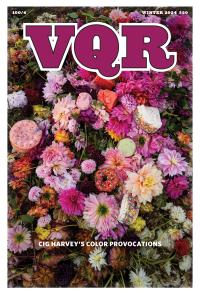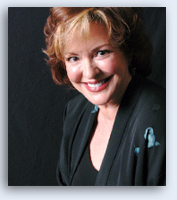
What Is Feminism? by Jacquelyn Mitchard

Editor’s note: The following post is part of a series in which a diverse range of women writers discuss their definition, idea, or experience of feminism. For more background, take a look at our Fall 2012 issue, which features “Bad Feminist” by Roxane Gay. You can find other pieces in this series by clicking here.
———
Remember when the worst thing to call a liberal was a “card-carrying” member of the American Civil Liberties Union? There’s no feminist card, but if there were, it would be in my elaborate, many-zippered red purse.
People will tell you there’s a credibility gap between that purse and feminism, into which contradiction can slip like bacteria. I can’t see bacteria, but I know what makes me sick. New Yahoo CEO Marissa Mayer says she doesn’t consider herself a feminist.
She doesn’t have to:
I did that for her.
Without me—or my generation—there wouldn’t be a CEO named Marissa who insists she’s not a feminist.
Moreover, I see no contradiction between being a mother (Marissa Mayer of one, me of nine) and being a feminist. I see none because there is none. There’s no contradiction between being a staunch feminist and any of the traditional girly things—like that snazzy red purse or falling hopelessly in love.
Because I am a feminist, it’s my right to want them all.
Those who call me militant are certainly correct. I will give not one inch. Like Bella Abzug (who fancied a great hat), it seems true that women will change the nature of power, rather than power changing the nature of women.
If you want to see how much sleep I lose over spurious antagonisms that redound to the new feminism (or the old, the good, the bad, and the shrill), study the period at the end of this sentence.
Because I have four daughters of color (two Hispanic, two born in Africa), I am told what a great responsibility it is to raise these little women—born into cultures where women are ritually oppressed—to be good feminists. The greater responsibility is to make good feminists of my five vanilla-colored sons, born into a culture dedicated to keeping them on top not just of their heap, but everyone else’s.
But daunting? No. Remove the word “feminist” and substitute the word “person” and you have the truth of it. Being a good feminist is being a good person. I see no contradiction, because there is none.
——
About the author: Jacquelyn Mitchard’s first novel, The Deep End of the Ocean, was named by USA Today as one of the ten most influential books of the past 25 years—second only to the Harry Potter series by J.K. Rowling (but second by a long shot, it must be said.) The Deep End of the Ocean was chosen as the first novel in the book club made famous by the TV host Oprah Winfrey, and transformed into a feature film produced by and starring Michelle Pfeiffer. All of Mitchard’s novels have been greater or lesser bestsellers—and include The Most Wanted, A Theory of Relativity, Twelve Times Blessed, The Breakdown Lane and Cage of Stars.
